
The human voice consists of sound made by a human being using the vocal tract, such as talking, singing, laughing, crying, screaming, etc. The human voice frequency is specifically a part of human sound production in which the vocal folds are the primary sound source.

The larynx, commonly called the voice box, is an organ in the top of the neck of tetrapods involved in breathing, producing sound, and protecting the trachea against food aspiration. The larynx houses the vocal folds, and manipulates pitch and volume, which is essential for phonation. It is situated just below where the tract of the pharynx splits into the trachea and the esophagus. The word larynx comes from a similar Ancient Greek word.

Yothu Yindi were an Australian musical group with Aboriginal and balanda (non-Aboriginal) members, formed in 1986 as a merger of two bands formed in 1985 – a White rock group called the Swamp Jockeys and an unnamed Aboriginal folk group. The Aboriginal members came from Yolngu homelands near Yirrkala on the Gove Peninsula in Northern Territory's Arnhem Land. Founding members included Stuart Kellaway on bass guitar, Cal Williams on lead guitar, Andrew Belletty (Drums), Witiyana Marika on manikay, bilma and dance, Milkayngu Mununggurr on yidaki (didgeridoo), Geoffrey Gurrumul Yunupingu on keyboards, guitar and percussion, and leader Mandawuy Yunupingu on vocals and guitar.
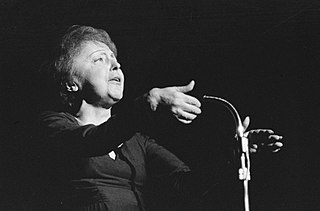
Singing is the act of producing musical sounds with the voice and augments regular speech by the use of sustained tonality, rhythm, and a variety of vocal techniques. A person who sings is called a singer or vocalist. Singers perform music that can be sung with or without accompaniment by musical instruments. Singing is often done in an ensemble of musicians, such as a choir of singers or a band of instrumentalists. Singers may perform as soloists or accompanied by anything from a single instrument up to a symphony orchestra or big band. Different singing styles include art music such as opera and Chinese opera, Indian music and religious music styles such as gospel, traditional music styles, world music, jazz, blues, gazal and popular music styles such as pop, rock, electronic dance music and filmi.

Callen Radcliffe "Cal" Tjader, Jr. was an American Latin jazz musician, known as the most successful non-Latino Latin musician. He explored other jazz idioms, even as he continued to perform the music of Cuba, the Caribbean, and Latin America for the rest of his life.

Discharge are a British musical group formed in 1977 by Terence "Tezz" Roberts and Royston "Rainy" Wainwright. While the band has had substantial line-up changes over its history, the classic line-up from the early 1980s featured bassist Wainwright, drummer Gary Maloney, Anthony "Bones" Roberts playing guitar, and vocalist Kelvin "Cal" Morris.
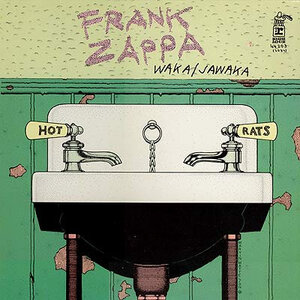
Waka/Jawaka is the fourth solo album by Frank Zappa, released in July 1972. The album is the jazz-influenced precursor to The Grand Wazoo, and, as the front cover indicates, a sequel of sorts to 1969's Hot Rats. According to Zappa, the title "is something that showed up on a ouija board at one time."
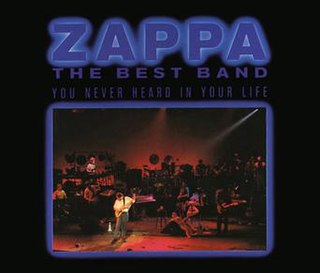
The Best Band You Never Heard in Your Life is a double-disc live album by American musician Frank Zappa, released in 1991. The album was one of three to be recorded during the 1988 world tour, along with Broadway the Hard Way and Make a Jazz Noise Here. Each of these three accounts of the 1988 tour has a different emphasis: Broadway the Hard Way mainly consists of new compositions; Make a Jazz Noise Here is a sampler of classic Zappa tunes, most of them instrumental; and The Best Band... devotes itself to covers. Some of these are unlikely, while many are from Zappa's extensive back catalogue. His mid-1970s output is emphasized in the selection, but there is also some material from the Mothers of Invention's late 1960s recordings and one song from 200 Motels. It was re-issued in 1995 and 2012 along with his entire catalogue.
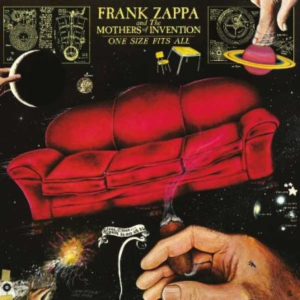
One Size Fits All is a rock album by Frank Zappa and the Mothers of Invention, released in June 1975. It is the tenth and last studio album of the band. A special four-channel quadraphonic version of the album was advertised but not released.
The International Championship of Collegiate A Cappella (ICCA), originally the National Championship of Collegiate A Cappella, is an international competition that attracts hundreds of college a cappella groups each year.

"Nathan Jones" is a hit single recorded by The Supremes, released in spring 1971 on the Motown label. Produced by Frank Wilson and written by Leonard Caston - a.k.a. Leonard Caston, Jr. - and Kathy Wakefield, "Nathan Jones" was one of eight Top 40 hits the Supremes recorded after its original frontwoman, Diana Ross, left the group for a solo career.
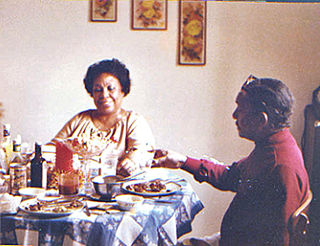
Gerald Foster Wiggins, Sr. was a jazz pianist and organist.
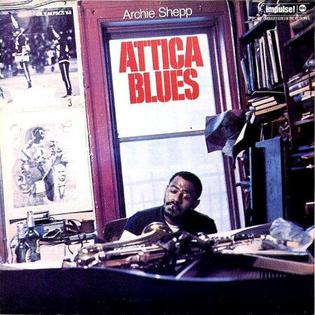
Attica Blues is an album by avant-garde jazz saxophonist Archie Shepp. Originally released in 1972 on the Impulse! label, the album title is a reference to the Attica Prison riots.
Los Furios is a nine-piece band from Vancouver, British Columbia which has performed across Western Canada since 2000. Los Furios began adding horns to the line-up in 2001 and have been evolving their blend of punk, ska, and reggae ever since.

Hear Nothing See Nothing Say Nothing is the debut studio album by English hardcore punk band Discharge, released on May 21, 1982 by Clay Records. While some critics at the time dismissed this album as "unmusical", in retrospect, it is viewed both a classic of the era and the peak of Discharge's career.

The UC Men's Octet, sometimes termed the Cal Men’s Octet or the UC Berkeley Men’s Octet, is an eight-member male a cappella group at the University of California, Berkeley. Founded in 1948 as a member of the UC Choral Ensembles, the group's broad repertoire features several genres of music including barbershop, doo-wop, pop and alternative, and a healthy dose of Berkeley fight songs. The Octet has recorded over a dozen albums and is one of only three multiple-time champions of the International Championship of Collegiate A Cappella (ICCA)—the other two being USC's SoCal VoCals and Berklee's Pitch Slapped—having won the competition in both 1998 and 2000.
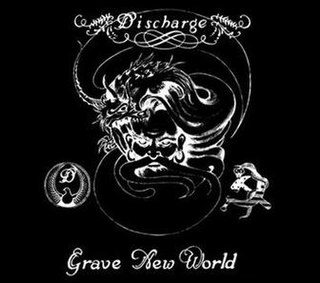
Grave New World is the second studio album by English hardcore punk band Discharge, released in 1986 by Clay Records. The album marks a radical stylistic change, with the band abandoning their previous hardcore punk style for a softer, and more accessible glam metal sound. The band split up in 1986, shortly after the album's release, but would end up reforming in 1990.
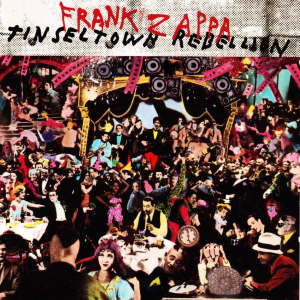
Tinsel Town Rebellion is a double live album released by Frank Zappa in May 1981. The album was conceived by Zappa after he scrapped the planned albums Warts and All and Crush All Boxes, and contains tracks that were intended for those albums.
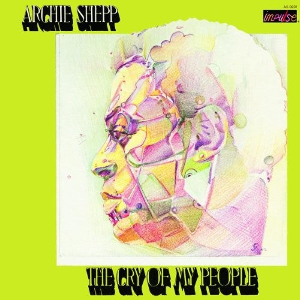
The Cry of My People is an album by avant-garde jazz saxophonist Archie Shepp released in 1972 on the Impulse! label. The album features performances by Shepp with gospel singers, big bands, quintets, sextets, and chamber orchestras. The Allmusic review by Thom Jurek states "Shepp worked with many larger ensembles as a leader, but never did he achieve such a perfect balance as he did on The Cry of My People".

Warm Wave is an album by Latin jazz vibraphonist Cal Tjader fronting an orchestra arranged and conducted by Claus Ogerman recorded in 1964 and released on the Verve label.

















